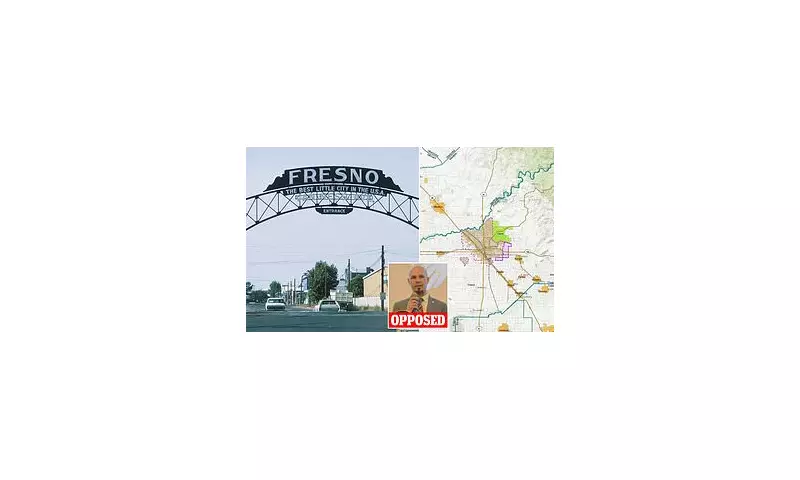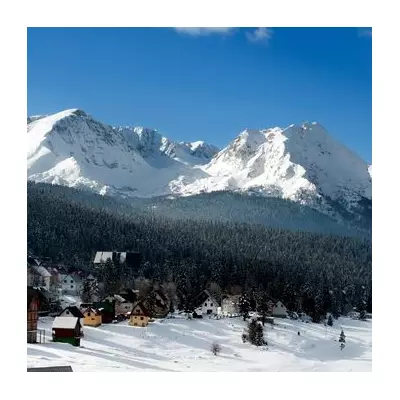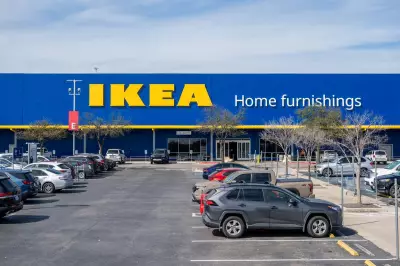
California Community Divided Over Vast Housing Development
Residents of a scenic Californian city are voicing fierce opposition to a colossal 9,000-acre housing project, a development that could cost billions of pounds and severely impact their quality of life. The city of Fresno is attempting to advance plans for the Southeast Development Area (SEDA), a site proposing 45,000 new housing units, but locals are branding the scheme as unreasonable and unviable.
Fury Over 'Sprawl' and Financial Burden
Dillon Savory, the executive director of the Fresno-Madera-Tulare-Kings Central Labor Council, warned that the project would have severe unintended consequences. He stated to SFGATE that the development "doesn't pay for itself" and that this type of sprawl is precisely why Fresno is considered one of America's worst-planned cities. Sprawl describes low-density, single-family housing, often built in an unplanned manner, that spreads across a city's outskirts. Savory bluntly added, "Nobody wants to be here."
The financial scale of the project is staggering. Preparatory work on the land alone is estimated at $2.2 billion, with the entire project cost potentially soaring to $4 billion. Savory also accused the city of seeking to take land from local family farmers, a move he labelled as "absolutely asinine" and exploitative. "These are residential farmers," he explained. "They're generally interested in the soil quality and preserving the rural way of life."
Farmers Fear for World-Class Farmland
This sentiment is echoed by those working the land. Helen Ramming, a farmer whose property lies within the proposed SEDA boundary, told GV Wire that families are the ones who "preserve the highest grade of prime farmland on planet earth." She identified the core concern, stating, "The biggest concern is that they are taking 9,000 acres of some of the best farmland in the world."
Fresno is situated in California's tranquil San Joaquin Valley, approximately 220 miles north of Los Angeles and 185 miles southeast of San Francisco. With a population of around 544,000, it ranks as the state's fifth most populous city.
The Case For Development: Tackling an Affordability Crisis
Despite the opposition, the SEDA plan is being presented as a necessary solution to a pressing problem. Proponents argue that Fresno has become increasingly unaffordable, driven by rising rent and housing costs. The project is described as the "final frontier" for the west coast city to boost its housing supply and stimulate economic growth.
Fresno councilmember Tyler Maxwell addressed these concerns during a meeting on November 6, acknowledging the city's "long history of growing irresponsibly." He argued, however, that the current housing crisis necessitates growth, and that SEDA presents an "opportunity to grow responsibly." Another councilmember, Mike Karbassi, representing Fresno's second district, firmly backed the plan, stating, "The best, most pro-housing thing we can do is to increase supply."
The proposal outlines an intention to create mixed-income neighbourhoods with diverse, affordable housing types. Nevertheless, the project's timeline remains highly uncertain. SEDA must first gain approval from the city's planning commission, which has its next meeting scheduled for November 19.
Environmental and Health Concerns Loom Large
Beyond the issues of cost and land use, serious questions have been raised about the development's environmental impact. Fresno already ranks among the top five most polluted areas in the United States, according to the American Lung Association, which gave the city an F grade for air pollution. The city's own environmental review concedes that SEDA could worsen existing air quality violations, contribute to new ones, or delay improvements. This is a critical health issue, as such pollution is linked to premature birth, heart attacks, strokes, and lung cancer.
Opponents like Dillon Savory are preparing for a political fight. He claimed that critics "have the political acumen to put an intense campaign of pressure" on the lawmakers who will vote on SEDA. He suggested residents would demand to know why billions are being sent to developers to build what he termed "cardboard houses for upper middle class."
If the project does proceed, its completion is a distant prospect. According to reports from Fresnoland, SEDA might not be finished until 2082 at its current projected pace, ensuring this debate will shape Fresno's future for decades to come.





